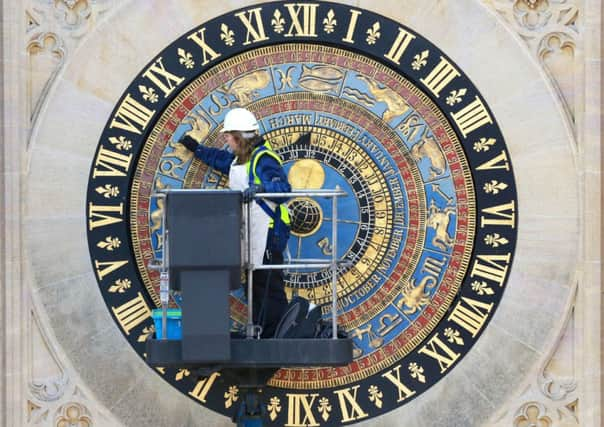When do the clocks change?


In common with most of Europe, BST begins at 01:00 GMT on the last Sunday of March and ends at 01:00 GMT (02:00 BST) on the last Sunday of October.
British Summer Time was first established by the Summer Time Act 1916, after a campaign by builder William Willett. His original proposal was to move the clocks forward by 80 minutes, in 20-minute weekly steps on Sundays in April and by the reverse procedure in September. In 1916 BST began on 21 May and ended on 1 October.
Advertisement
Hide AdAdvertisement
Hide AdApart from World War Two and a brief period of experimental “British Standard Time” in the early 1970s, we have adopted the “spring forward, fall backwards” model ever since.
FACTS ABOUT BRITISH SUMMER TIME
• British-born New Zealander George Vernon Hudson first proposed the modern idea of a two-hour daylight saving in 1895.
• British Summer Time was suggested in 1907 by William Willett, a keen horse rider and frustrated by the ‘waste’ of daylight in the early mornings during the summer.
• Willett’s pamphlet ‘The Waste of Daylight’ campaigned for the clocks to be changed, but he died in 1915 before he could see it come into being as the idea was opposed by many, especially farmers.
Advertisement
Hide AdAdvertisement
Hide Ad• Austria and Germany were the first countries to enact ‘Daylight Savings Time’ in 1916, quickly followed the same year by the UK and much of Europe.
• It was enforced during the First World War, in a bid to save money during wartime.
• The current system has been in place since 1972, proposals to keep the clocks at least one hour ahead of GMT all-year round have been debated frequently in parliament but never implemented.
• The lighter evenings are also said to reduce road traffic accidents and crime.
• It is argued BST is good for physical and psychological health, particularly in terms of relieving the symptoms of Seasonal Affective Disorder (SAD).